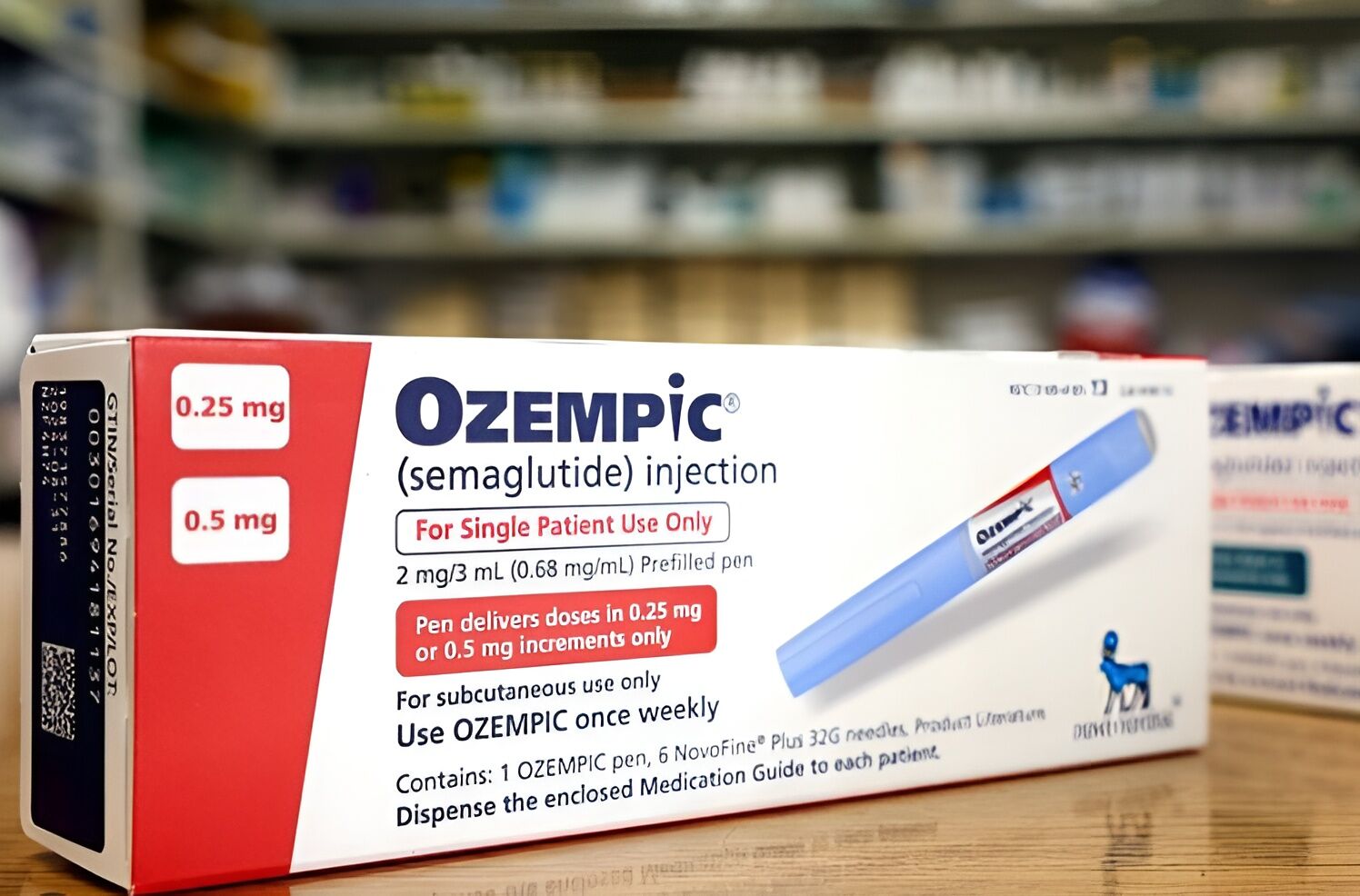Trendy weight-loss drugs like Ozempic and Wegovy increase risk for blindness

Recent research has unveiled a startling connection between popular weight-loss medications and an increased risk of a rare eye condition. Drugs like Ozempic and Wegovy, widely embraced by celebrities, influencers, and the affluent in Western countries as well as in Thailand and Singapore, are now under scrutiny for potentially raising the risk of sudden vision loss.
The surprising link to blindness
A study published in JAMA Ophthalmology has raised alarms by linking semaglutide-based drugs, commonly used for diabetes and weight loss, to a heightened risk of non-arteritic anterior ischemic optic neuropathy (NAION). NAION is a rare but serious condition that leads to sudden, painless vision loss in one eye, resembling a stroke in the eye.
Researchers found that users of these medications, marketed as Ozempic and Wegovy, were significantly more likely to develop NAION. For patients with diabetes, the risk was four times higher compared to those on other treatments. For individuals using these drugs for weight loss, the risk surged even more dramatically, being seven times higher.

Understanding NAION
NAION affects about 10 out of every 100,000 people, making it a rare condition. However, the study, which involved nearly 1,700 semaglutide users, highlighted a worrying trend. Among diabetic patients on semaglutide, 8.9% developed NAION, compared to just 1.8% among those on different diabetes medications. Similarly, among those using semaglutide for weight loss, 6.7% experienced NAION, a stark contrast to the 0.8% incidence in those on alternative weight-loss drugs.
The researchers emphasised that while the study indicates a potential link, further research is needed to establish a definitive causal relationship.
Key findings from the study
The study’s objective was to investigate whether semaglutide is associated with an increased risk of NAION. Conducted retrospectively using data from a centralised registry, the research covered patients evaluated by neuro-ophthalmologists over six years.
The researchers matched patients based on various factors, including age, sex, systemic hypertension, diabetes, obstructive sleep apnea, obesity, hyperlipidemia, and coronary artery disease. They then compared the incidence of NAION between those prescribed semaglutide and those using other medications.
The results were concerning. Among the 16,827 patients studied, those with type 2 diabetes who were prescribed semaglutide had a cumulative NAION incidence of 8.9% over 36 months, compared to just 1.8% in the non-semaglutide group. In the overweight or obese category, the NAION incidence was 6.7% for semaglutide users, versus 0.8% for those on other weight-loss medications.
Implications and future research
These findings suggest a significant association between semaglutide and the risk of developing NAION. While the study was observational, its results highlight the need for caution and further investigation.
The researchers concluded that, given the observational nature of the study, future research is necessary to confirm these findings and explore the underlying mechanisms. They also recommended that patients and healthcare providers consider these potential risks when deciding on treatment plans involving semaglutide.

What does this mean for you?
If you are using or considering semaglutide-based medications like Ozempic or Wegovy for diabetes management or weight loss, it is crucial to be aware of this potential risk. Regular eye check-ups and consultations with your healthcare provider can help monitor any changes in your vision.
It’s important to remember that while the risk is increased, NAION remains a rare condition. However, being informed about the potential side effects of any medication is a key step in managing your health effectively.
The bottom line
Weight-loss medications like Ozempic and Wegovy, though effective for many, may come with serious side effects. The recent study’s findings about the increased risk of NAION call for a balanced approach, weighing the benefits of these drugs against their potential risks. As always, consult with your healthcare provider to make the best decision for your health and well-being.
By staying informed and vigilant, you can navigate the complexities of medication management while safeguarding your overall health, including your vision.
Latest Thailand News
Follow The Thaiger on Google News:


























